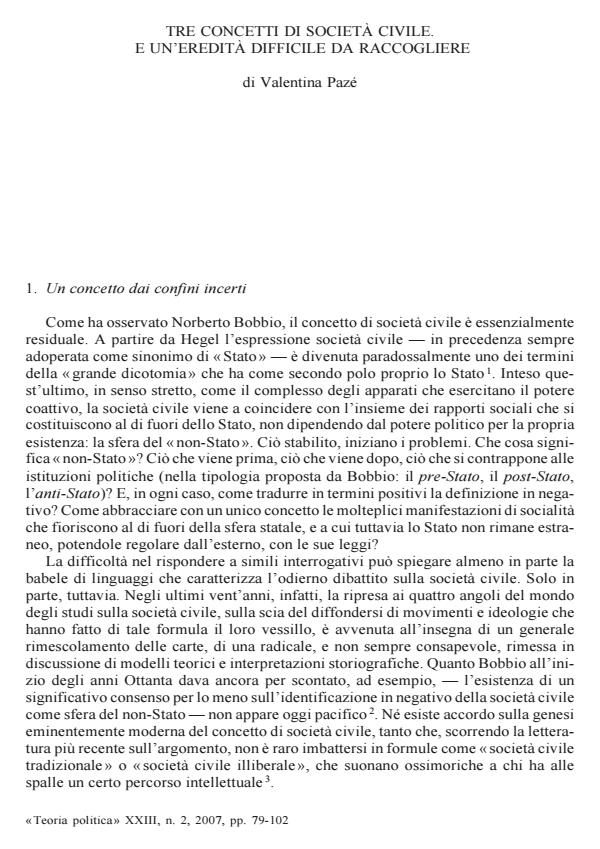Tre concetti di società civile. E un'eredità difficile da raccogliere
Journal title TEORIA POLITICA
Author/s Valentina Pazè
Publishing Year 2007 Issue 2007/2
Language Italian Pages 24 P. 79-102 File size 368 KB
DOI
DOI is like a bar code for intellectual property: to have more infomation
click here
Below, you can see the article first page
If you want to buy this article in PDF format, you can do it, following the instructions to buy download credits

FrancoAngeli is member of Publishers International Linking Association, Inc (PILA), a not-for-profit association which run the CrossRef service enabling links to and from online scholarly content.
The scholarly debate on civil society has taken off in the last two decades, on the background of movements and ideologies, which are ispired by this idea. However, scholars disagree both on the definition of the concept and what may be labeled under it. This essay illustrates and discusses three contemporary theories, focusing on three distinct concepts of civil society, which can be held to be representative of the variety of meanings the word deploys today. If Adam Seligman uses the expression to designate an ideal model of the good state or society, John Keane, who is closer to the teachings of Marx, has it standing for a non-governmental system of socio-economic institutions, chiefly molded on nonviolence. In the work of Jean Cohen and Andrew Arato, civil society is defined as a non-governmental and a non-economic sphere of social interactions, and identified with a segment of Habermas’ « World of Life » [Lebenswelt]. What holds these various authors together is that they tend to use the notion in a generally normative sense. The essay analysis and discusses the various definitions and re-definitions, considering their plausibility and coherence with the aim of renewing democracy and socialism, an aim embraced by some of these authors.
Valentina Pazè, Tre concetti di società civile. E un'eredità difficile da raccogliere in "TEORIA POLITICA" 2/2007, pp 79-102, DOI: